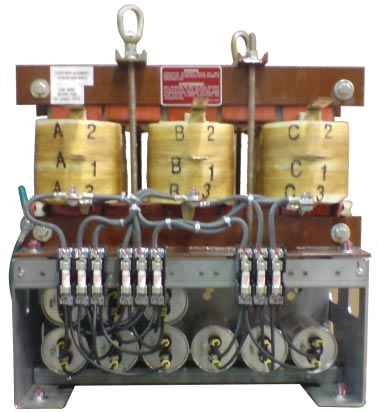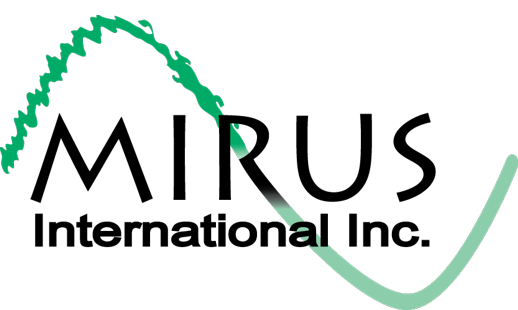
INVERSINE™
Advanced Universal Sine-wave Filter
High dV/dT combined with a mismatch between cable and motor surge impedance can result in reflective wave phenomenon at standard induction motor terminals. Voltages can increase by as much as 2 to 3 times nominal peak levels possibly exceeding the insulation rating of the feeder cables and motor magnetic wire leading to insulation stress, partial discharges and eventual failure. This problem can result with short cable runs but becomes magnified with long cable runs.
Typical problems experienced can include motor and winding failure, motor noise, cable insulation degradation, premature ASD failure, common-mode and reflected wave phenomenon and high EMI/RFI.
Differential Mode
The Inversine Advanced Universal Sine-wave Filter (AUSF) is designed to address the problems resulting from pulse width modulation. It is a low pass filter with cut-off frequency well below the switching frequency of the inverter.
The AUSF is much more than a simple dV/dT filter and will:
- Substantially reduce voltage rise time (dV/dt)
- Convert output voltage to near sinusoidal waveform (<3%)
- Prevent transient overvoltages at motor terminals
- Lower harmonic losses in the motor
- Reduce motor noise
- Reduce motor and cable insulation stress
- Extend life of the motor and ASD
Features:
- Low insertion loss and voltage drop(<3% of rated voltage)
- No damping resistors required
- Power delivered to motor >96%
- Efficiency >98%
- Improves Power Factor of the motor near unity
- Reactive power compensation
- Prevents transient overvoltages at motor terminals
- Reduces motor noise
- Filters out high frequency currents while allowing lower fundamental currents to pass
- Reliable and proven performance
Common-Mode
Common-mode is the phase-to-ground voltage that appears as a result of the instantaneous sum of the 3-phase voltages of the PWM inverter not being zero even when the sum of the average 3-phase voltages is zero. Common-mode voltages will induce common-mode currents to flow through parasitic capacitance in the motor and motor feeder cable. High frequency capacitive coupling exists across the motor bearings and between the feeder conductor or motor winding and ground. Common-mode currents can lead to premature motor bearing failure.
The Inversine Common-mode Choke option will:
- Reduce shaft voltage and bearing currents
- Reduce cable leakage currents
- Reduce common-mode voltages throughout power system
- Lower harmonic losses in the motor
